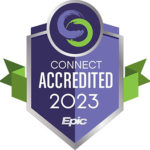
Dear Acumen blog readers,
Much has transpired during the 3 weeks since our last post. COVID-19 continues to create very real problems in many communities around the country, and the pandemic makes its way into much of the news and many of the conversations we have each day. As a bit of respite from the COVID wave, today’s post, while spawned by COVID, will hopefully take your mind off the current public health emergency. And as a small bonus, let’s retrieve the previously retired technique of blogging to an old tune. Today we are going to discuss the timing of the new CMMI voluntary models collectively referred to as Kidney Care Choices (KCC), weaving in one of those ear worms from the early 80s.
Darling, you got to let me know
To level set, last summer our commander-in-chief issued an executive order launching the Advancing American Kidney Health (AAKH) initiative. AAKH did several things. Pertinent to this discussion was the birth of 5 new payment models. The publication of a proposed rule for a mandatory model called the ESRD Treatment Choices (ETC) Model occurred on that day in July 2019 when AAKH was launched (to date we have not seen a final rule). The executive order also highlighted the future release of a set of four voluntary KCC models referenced above. Regarding KCC, in late October 2019 an 84-page request for application (RFA) was published. Though light on detail, the RFA established an application deadline of January 22, 2020. We and many others across the country rallied the troops and, by all counts, the Center for Medicare and Medicaid Innovation (CMMI) received a large number of applications for Comprehensive Kidney Care Contracting (CKCC), often referred to as ESCO 2.0.
One day it’s fine and next it’s black
The original plan per CMMI was to review those applications, let applicants know during the spring of this year who had been accepted, begin the implementation period this summer, and transition to the risk-bearing performance side of CKCC starting January 1, 2021. This timing was convenient as the new model’s start coincided exactly with the conclusion of the ESCO program, which ends on December 31, 2020. Such a transition would ensure there was no “gap year” between models.
Of course, no one anticipated the arrival and the COVID-19 pandemic. I don’t have to describe the impact this has had on nephrology practices across the country to readers of the Acumen blog. It is clear that some nephrology communities are still in prep mode, while at the other end of the spectrum, there are nephrology communities where care delivery and practice operations have been dramatically disrupted. Without an “all clear” signal in sight, practices I have spoken with do not have an appetite to start a new payment model this year.
If I go there will be trouble
If I am on a CKCC application today, what would it look like if I bailed and did not start this year per the current plan? Well, your opportunity to participate in the new payment model would have to wait. CMMI has suggested there will be a second request for application at some point the future. When is anyone’s guess. Playing this out further, not signing a participation agreement means you would face the Merit-based Incentive Payment System (MIPS) in 2021, and likely 2022 unless the CKCC application process reopened quickly. MIPS of course has become more challenging each year, and for those in the ESCO, this could be one’s first year of MIPS.
And if I stay it will be double
The alternative is to stay the course, sign the participation agreement, and prepare to take downside risk in a new payment model starting January 1, 2021. Part of the challenge here is the details behind CKCC are not public. Many questions remain about the proposed quality measures, the risk adjustment mechanism CMMI intends to use, the benchmark-setting scheme, and perhaps more pertinent to the conversation is the early cash-flow hit practices will likely face. Oh, and in case you didn’t catch it, you would be signing up for a brand new payment model in the midst of the COVID madness.
So ya gotta let me know
There is an alternative that’s gaining traction in the renal community: Extend the ESCO for a year and delay KCC a year. Let’s unpack this one for a minute. There are a large number of nephrologists in an ESCO today, and many of those are part of a CKCC application. While the ESCO has its flaws, pushing the end date to December 31, 2021, would mean no one is compelled to learn about a new model this year. If the CKCC implementation begins in the spring or summer of 2021, prior to the start of downside risk on January 1, 2022, those involved will realize a number of advantages:
- Patients in the model will not receive notice they are in a new payment model during a time of concern and confusion.
- Practices reeling from the disruption created by COVID-19 will have a year to get back on their feet before learning about a new model.
- CMMI will get an extra year to fine tune both KCC and ETC.
- All will have a better understanding the impact the 21st Century Cures Act will have on these models.
I think this last point deserves some additional attention. As all are aware, next year for the first time in history, a Medicare ESRD patient will have the option to move into Medicare Advantage. None of us know how common this transition will be. But it’s safe to say that those who switch to Medicare Advantage will be “healthier” than those who do not. That means the ESRD Medicare population in 2021 will likely be “sicker” than the Medicare ESRD population in 2020. Would it be best to start a new payment model in 2021, or end a payment model in 2021? My vote is the latter.
Should I stay or should I go?
But the biggest advantage to everyone involved is that extending the ESCO and delaying KCC by a year avoids the dreaded “gap year.” Imagine the ESCOs come to a close at the end of 2020, and either you don’t participate in KCC or it’s delayed by 6-12 months. The gap creates a very high likelihood that we will lose the muscle memory we’ve developed over the past 4-5 years. Those of you actively involved in the ESCO program know that your approach to care is different today compared with the pre-ESCO days. The same can be said of the workflows in the dialysis clinics involved and in the supporting care coordination infrastructure. You also know this did not happen overnight. How long do you think it would take to fall back into the old fee-for-service habits we have recently broken? My bet is not long at all. Couple that with the fact that nephrologists exposed to the gap year will have the opportunity to participate in MIPS during 2021, many for the first time.
I am not the only one who thinks this is the best path forward as this approach is emerging on multiple fronts. Now is not the time to launch new payment models (voluntary of mandatory). But a simple delay creates a gap year, which frankly could set value-based care back into the dark ages (OK, a bit of embellishment here). The best approach for all concerned is to extend an imperfect model for another year, use that time to fine tune the new ones, and launch those when the current public health crisis is in the history books. In conjunction with the delay, CMMI should contemplate a means to soften the downside of these models for the pioneers who stepped up to the plate by joining the ESCO program.
As always, we value your comments. Stay or go, drop us a note and join the conversation, but more importantly, stay safe!

Terry Ketchersid, MD, MBA, practiced nephrology for 15 years before spending the past seven years at Acumen focused on the Health IT needs of nephrologists. He currently holds the position of Chief Medical Officer for the Integrated Care Group at Fresenius Medical Care North America where he leverages his passion for Health IT to problem solve the coordination of care for the complex patient population served by the enterprise.
Opening photo by Nadine Shaabana on Unsplash




Chris Najafi, MD says
It sounds like you are suggesting that CMMI take a common sense approach. How confident are you that they are capable of such a radical idea?
Terry Ketchersid, MD, MBA, Chief Medical Officer - Integrated Care Group says
I think they are Chris. At the end of the day they are testing new payment models. I think they are beginning to understand the impact COVID has had on practice workflow, and they also appreciate the problems a “gap year” creates. Time will tell!
Barbara Greco says
Extending the ESCO makes a lot of sense. I’m in favor